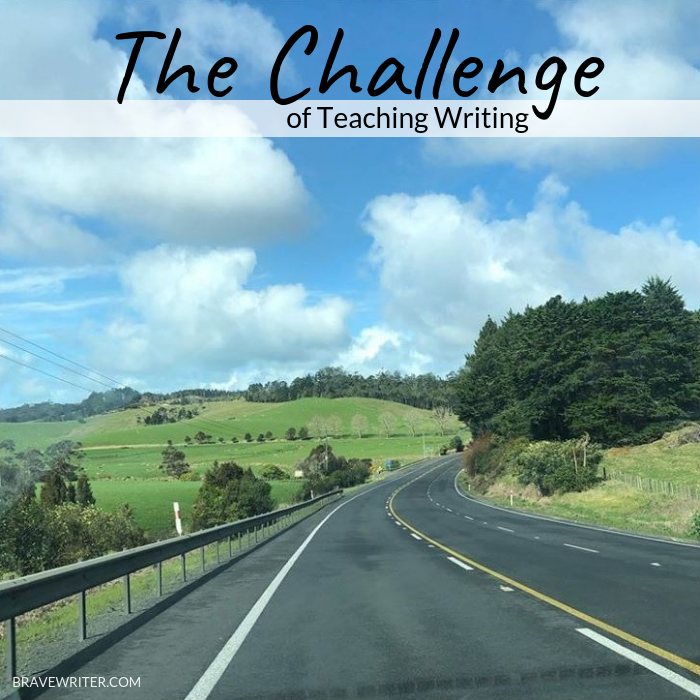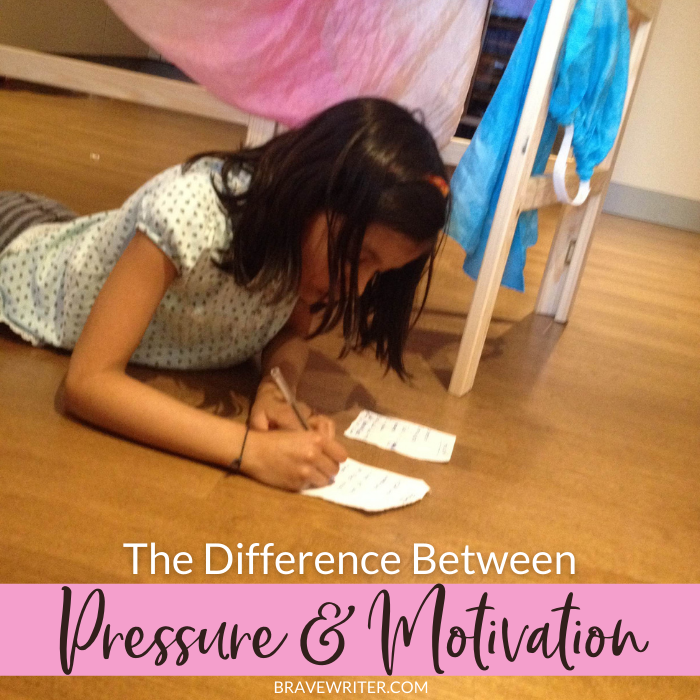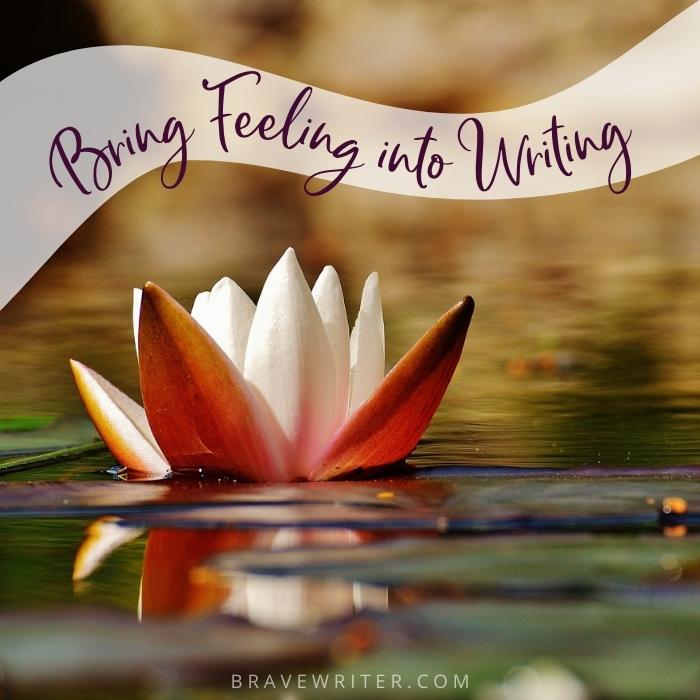
No matter how many miles I travel, every group of home educators I meet can talk a noisy blue streak about how challenging it is to teach writing.
They say similar stuff:
- it’s too subjective,
- their kids’ hands hurt,
- they lack confidence in their own writing so how can they teach it?
- there are tears,
- their kids can’t think of anything to write,
- the parents feel appalled by messy handwriting or so many spelling errors.
On and on goes the list.
Often when I’m speaking, I invite parents to share with each other, and suddenly the room erupts in animated conversation, laughter, and commiseration!
It’s worth asking: why?! Why is this the case? Does it need to be? I say an emphatic “No” and then we talk about it.
If you find teaching writing difficult then you’re not alone, and you’re in the right place! Here are some suggestions:
Take advantage of the Brave Writer website, blog, and YouTube channel. They’re filled with helpful tips and resources. If you’re brand new start here.
Download our 7-Day Writing Blitz for an introduction to how painless teaching writing can be!
And feel free to email us (help@bravewriter.com) with any questions.
This post is originally from Instagram and @juliebravewriter is my account there so come follow along for more conversations like this one!
For in depth coaching, join The Homeschool Alliance!

























